Israel has bombed and shelled Gaza, witnesses and first responders said, with fallout from the war bringing a resurgence of tensions to the Lebanon border and Yemen.
The Israeli military said eight soldiers were killed in southern Gaza as forces continued to push in and around the southern city of Rafah, and strikes hit several areas of the enclave, killing at least 19 Palestinians.
The soldiers, all members of a combat engineering unit, were in an armoured carrier that was hit by an explosion that detonated engineering materials being carried on the vehicle, apparently in contravention of standard practice, the military said.
It said the early morning incident, in the Tel al-Sultan area in the west of Rafah, was being investigated.
The armed wing of the Palestinian militant group Hamas said the vehicle had been trapped in a prepared minefield that set off the explosion.
Israeli tanks advanced in Tel al-Sultan and shells landed in the coastal area, where thousands of Palestinians, many of them displaced several times already, have sought refuge.
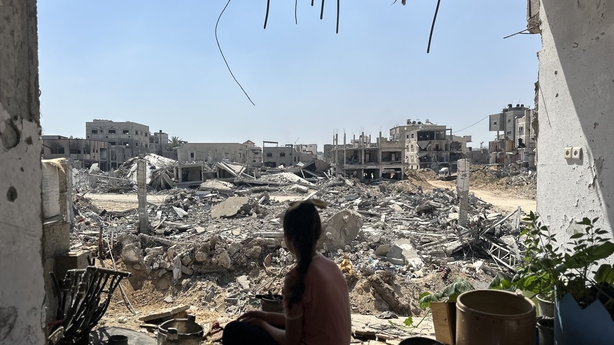
Despite growing international pressure for a ceasefire, an agreement to halt the fighting still appears distant, more than eight months since the start of the war in October, with the near-daily cross-border exchanges of fire with Hezbollah militia fighters in southern Lebanon intensifying.
In Israeli airstrikes on two houses in Gaza City suburbs, residents said at least 15 people were killed.
Medics said four others were killed in separate attacks in the south.
The Israeli military said its forces in Rafah, the southernmost city in Gaza, close to the border with Egypt, had captured large quantities of weapons, both above ground and concealed in the extensive tunnel network built by Hamas.
We need your consent to load this rte-player contentWe use rte-player to manage extra content that can set cookies on your device and collect data about your activity. Please review their details and accept them to load the content.Manage Preferences
It said militants fired five rockets from the humanitarian area in central Gaza yesterday, two of which fell in open areas in Israel and three fell short in Gaza.
"This is a further example of the cynical exploitation of humanitarian infrastructure and the civilian population as human shields by terror organisations in the Gaza Strip for their terrorist attacks," the Israeli military said.
The deaths of the soldiers may complicate the political situation facing Prime Minister Benjamin Netanyahu, a week after centrist former general Benny Gantz quit the government, accusing Mr Netanyahu of having no proper strategy for Gaza.
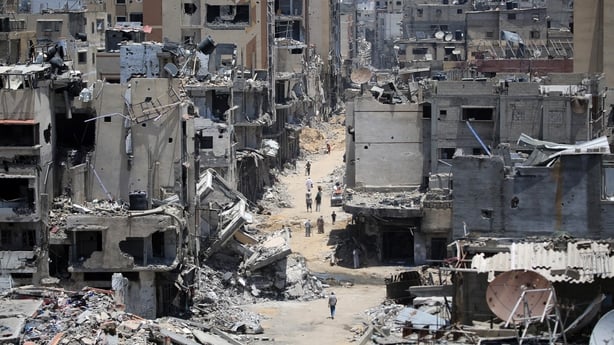
The Islamic Jihad armed wing, Al-Quds Brigades, said Israel could only regain its hostages in Gaza if it ended the war and withdrew forces from the enclave.
Islamic Jihad is a smaller ally of Hamas, which led an attack in southern Israel on 7 October in which 1,200 people were killed and more than 250 taken hostage, according to Israeli tallies.
More than 100 hostages are believed to remain captive in Gaza, although at least 40 have been declared dead in absentia by Israeli authorities.
Since a week-long truce in November, repeated attempts to arrange a ceasefire have failed, with Hamas insisting on a permanent end to the war and full Israeli withdrawal from Gaza.
Mr Netanyahu refuses to end the war before Hamas is eradicated.
At least 37,296 Palestinians, at least 30 of them in the past 24 hours, have been killed in Israel's military campaign to eliminate Hamas, according to the Gaza health ministry.
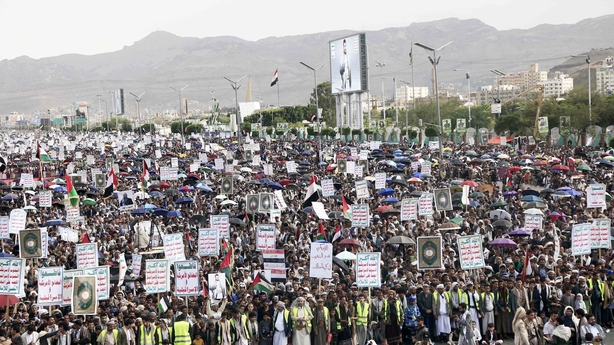
Meanwhile, fears of a broader Middle East conflict have surged again, with Lebanon-based Hezbollah fighters, who are backed by Iran and allied with Hamas, launching waves of rockets and drones against Israeli military targets.
Hezbollah said intense strikes since Wednesday were retaliation for Israel's killing of one of its commanders.
Israeli forces responded with shelling, the military said, also announcing air strikes on Hezbollah infrastructure across the border.
In southern Lebanon, two women were killed in a strike on Jannata, village official Hassan Shur said, the latest deaths in near-daily exchanges of fire between Hezbollah and the Israeli military since the Gaza war began.
The fallout from the Gaza war also escalated this week off Yemen.
On Friday the US military said it destroyed two uncrewed surface vessels in the Red Sea belonging to Yemen's Iran-backed Houthi rebels, as well as one drone and seven radars that allowed the rebels to target ships.
The Houthi's say they are acting in solidarity with the Palestinians.
Concern over West Bank
The World Health Organization has raised concerns about an escalating health crisis in the occupied West Bank, where growing restrictions, violence and attacks on health infrastructure are increasingly obstructing access to care.
In a statement, the UN health agency said it was calling "for the immediate and active protection of civilians and health care in the West Bank".
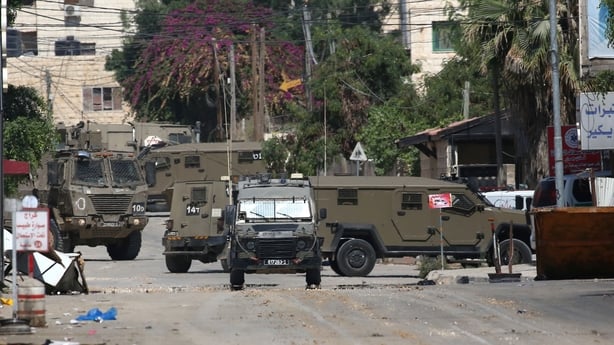
It noted that a spike in violence in the West Bank, including in East Jerusalem, since the war in Gaza erupted on 7 October had by 10 June left 521 Palestinians dead, including 126 children.
Palestinian officials have put the West Bank death toll even higher, saying at least 545 Palestinians have been killed by Israeli troops or settlers since the Gaza war broke out.
In addition to the deaths, more than 5,200 people - 800 of them children - have been injured, the WHO said, stressing that this only added to "the growing burden of trauma and emergency care at already strained health facilities".
The West Bank, which Israel has occupied since 1967, has experienced a surge in violence for more than a year, but especially since the Israel-Hamas war in Gaza erupted more than eight months ago.
The war has repeatedly seen health facilities in Gaza come under attack.
And the WHO said that healthcare in the West Bank was also facing increasing attacks.
Between 7 October and 28 May, it said it had documented 480 attacks in the West Bank, including on health facilities and ambulances, and the detention of health workers and patients.
Those attacks had left 16 people dead and 95 injured, it said.
At the same time, checkpoint closures, growing insecurity, and sieges and closures of entire communities were making movement within the West Bank increasingly restricted, making access to care ever more difficult.
The WHO warned that a long-standing fiscal crisis - made worse since 7 October as Israel increased its withholding of tax revenue meant for the Palestinian territory - was also taking its toll on health care.
This, it said, had resulted in "health workers receiving only half of their salary for nearly a year and 45% of essential medications being out of stock".
And hospitals were operating at only around 70% capacity, it said.
It had also become more difficult for patients to seek medical care outside the West Bank, with 44% of requests to go to facilities in East Jerusalem and Israel denied or pending since 7 October.
Gaza pier temporarily moved
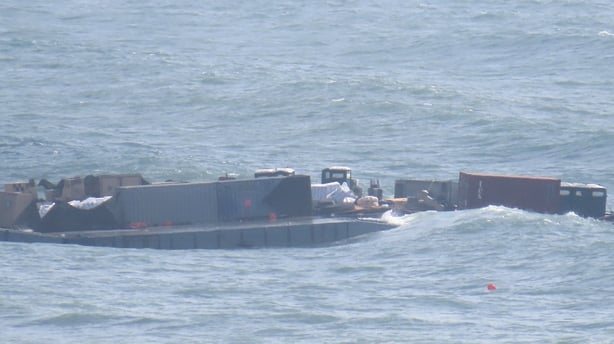
The US military said a pier it built to help bring aid into Gaza would be temporarily moved to an Israeli port to protect it from expected high seas.
The pier was reattached to the Gaza shore a week ago, after suffering storm damage in May that required repairs at Ashdod, where it will return to avoid the latest bad weather.
Aid deliveries via the pier - which have totalled over 3,500 metric tons so far - will resume after the sea has calmed, the US Central Command said.
G7 leaders called for the "rapid and unimpeded passage of humanitarian relief for civilians in need", and said the UN agency for Palestinian refugees, UNRWA, must be allowed to work in Gaza unhindered.
Israel had accused 12 of the agency's 13,000 Gaza staff of involvement in the 7 October attack, prompting several donor governments to suspend their contributions.
An independent review said Israel had not yet provided evidence that UNRWA employed "terrorists".
As Muslims worldwide prepare to mark Eid al-Adha starting tomorrow, Gazans lamented the shortages of essential goods and lack of an Eid spirit.

